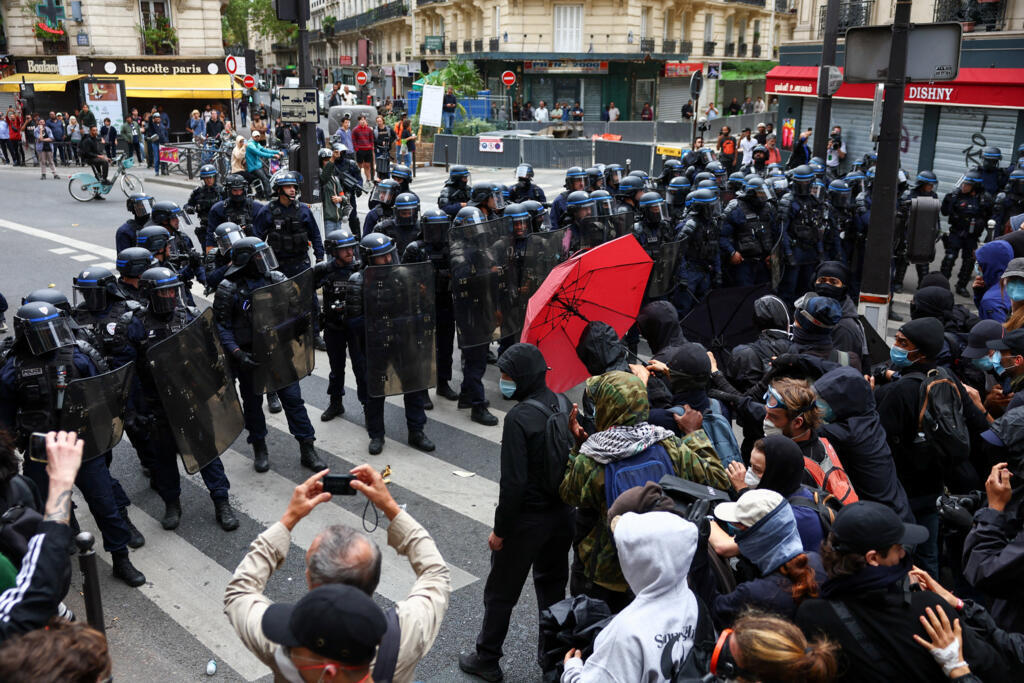France Appoints New Prime Minister Amid Nationwide Protests
France appointed Sébastien Lecornu as its new prime minister on September 9, 2025, following a government collapse, as nationwide 'Block Everything' protests erupted in response to austerity measures and political instability.

France entered a new phase of political turbulence on September 9, 2025, as President Emmanuel Macron appointed Sébastien Lecornu, the former defense minister, as the country’s new prime minister. Lecornu’s appointment came just one day after the government of François Bayrou was toppled by a parliamentary vote of no confidence, triggered by widespread opposition to proposed austerity measures and deepening fiscal deficits.
The rapid transition in leadership was immediately overshadowed by a wave of nationwide protests. On September 10, demonstrators mobilized under the banner of the 'Block Everything' movement, blocking roads, disrupting public transport, and clashing with police in cities including Paris, Rennes, Marseille, and Caen. The French interior ministry reported nearly 300 arrests in the first hours of the protests, with authorities deploying 80,000 police officers across the country to maintain order. Fires were set in several locations, including a bus in Rennes, and train services in Paris faced significant disruptions.
Political Upheaval and Appointment of Lecornu
Lecornu, 39, is Macron’s fifth prime minister in less than two years and is seen as a loyalist with experience managing crises, including the 'Yellow Vest' protests and unrest in overseas territories. In his official statement, Lecornu pledged to focus on 'the defense of our independence and our power, the service of the French people, and political and institutional stability for the unity of the country.' Macron tasked him with building consensus on a new budget before forming a full government, a move reflecting the president’s urgent need to restore stability amid a hung parliament and persistent legislative deadlock.
The ousted Bayrou had attempted to push through a budget that included $51 billion in spending cuts to address France’s public debt, which has reached 114% of GDP. His gamble backfired, uniting opposition parties against him and exposing the fragility of Macron’s centrist coalition. The political crisis has fueled public anger, with many protesters and opposition figures criticizing the government’s perceived disregard for social welfare and economic justice.
Nationwide Protests and Public Sentiment
The 'Block Everything' movement, which gained traction over the summer through social media and encrypted messaging, called for strikes, boycotts, and mass demonstrations. Protesters voiced frustration over austerity, inequality, and what they see as a lack of democratic accountability. 'We are tired of [Macron’s] successive governments, we need change,' one protester told local media. The movement’s decentralized nature and broad demands have drawn comparisons to the 'Yellow Vest' protests that rocked France in 2018-2019.
Despite the government’s heavy police deployment, the protests caused widespread disruption but fell short of paralyzing the country. Authorities reported that most blockades were quickly dismantled, though sporadic violence and property damage were reported. The protests underscored the deep divisions within French society and the challenges facing Lecornu as he seeks to negotiate a budget and restore public trust.
Outlook and Challenges Ahead
Political analysts warn that the appointment of another Macron loyalist may do little to ease tensions or break the legislative impasse. With opposition parties entrenched and public anger simmering, Lecornu faces an uphill battle to forge consensus and implement reforms. Commentators in both French and international media have noted that continued instability could further empower the far right ahead of the 2027 presidential elections, unless the government finds a way to address the underlying causes of discontent.
As France grapples with economic pressures and political fragmentation, the coming weeks will test Lecornu’s ability to navigate a polarized parliament and a restless public, with the stability of Macron’s presidency hanging in the balance.